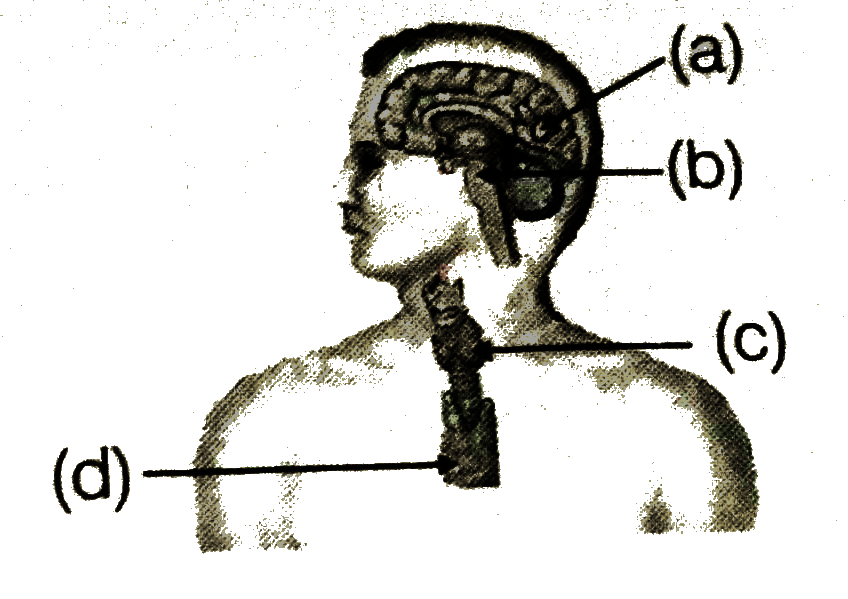The posterior pituitary gland is not a 'true' endocrine gland because
it is provided with a duct
it only stores and releases hormones
it is under the regulation of hypothalamus
it secretes enzymes
The correct Answer is:B
Step-by-Step Solution:
1. Definition of Endocrine Glands: Endocrine glands are known as ductless glands. They produce hormones and release them directly into the bloodstream without the use of ducts.
2. Function of the Posterior Pituitary Gland: The posterior pituitary gland does not produce hormones itself. Instead, it stores and releases hormones that are produced by the hypothalamus.
3. Hormones Involved: The two main hormones associated with the posterior pituitary gland are oxytocin and vasopressin (also known as antidiuretic hormone, ADH). These hormones are synthesized in the hypothalamus.
4. Storage and Release Mechanism: The posterior pituitary gland acts as a storage site for oxytocin and vasopressin. When needed, these hormones are released into the bloodstream from the posterior pituitary.
5. Conclusion: Since the posterior pituitary gland does not produce hormones but only stores and releases them, it is not considered a 'true' endocrine gland. It is regulated by the hypothalamus, which is responsible for the production of the hormones.
Final Answer:
The posterior pituitary gland is not a 'true' endocrine gland because it does not produce hormones; it only stores and releases hormones (oxytocin and vasopressin) that are produced by the hypothalamus.
---
The posterior pituitary gland is not a 'true' endocrine gland because it does not produce hormones; it only stores and releases hormones (oxytocin and vasopressin) that are produced by the hypothalamus.
Topper's Solved these Questions
- CELL- THE BASIC UNIT OF LIFE ( CELL AND ITS STRUCTURAL ORGANISATION )BOOK - TRUEMEN BIOLOGY ENGLISHCHAPTER - CELL- THE BASIC UNIT OF LIFE ( CELL AND ITS STRUCTURAL ORGANISATION )EXERCISE - MULTIPLE CHOICE ANSWER TYPE
308 Videos
- EXCRETORY PRODUCTS AND THEIR ELIMINATIONBOOK - TRUEMEN BIOLOGY ENGLISHCHAPTER - EXCRETORY PRODUCTS AND THEIR ELIMINATIONEXERCISE - MULTIPLE CHOICE OUESTIONS
191 Videos
Similar Questions
Endocrine glands
View SolutionEndocrine glands
View SolutionPituitary gland is located
View SolutionNeurohypophysis is not a 'true' endocrine gland because
View SolutionPituitary gland is found in
View SolutionPituitary gland is found in
View Solution$ Cerebrum is formed of four cerebral hemisphers.
! Pituitary gland is not a type of endocrine gland.
View SolutionThe posterior lobe of pituitary gland secretes :
View SolutionWhere is pituitary gland located ?
View SolutionLabel the endocrine gland in figure

View Solution
